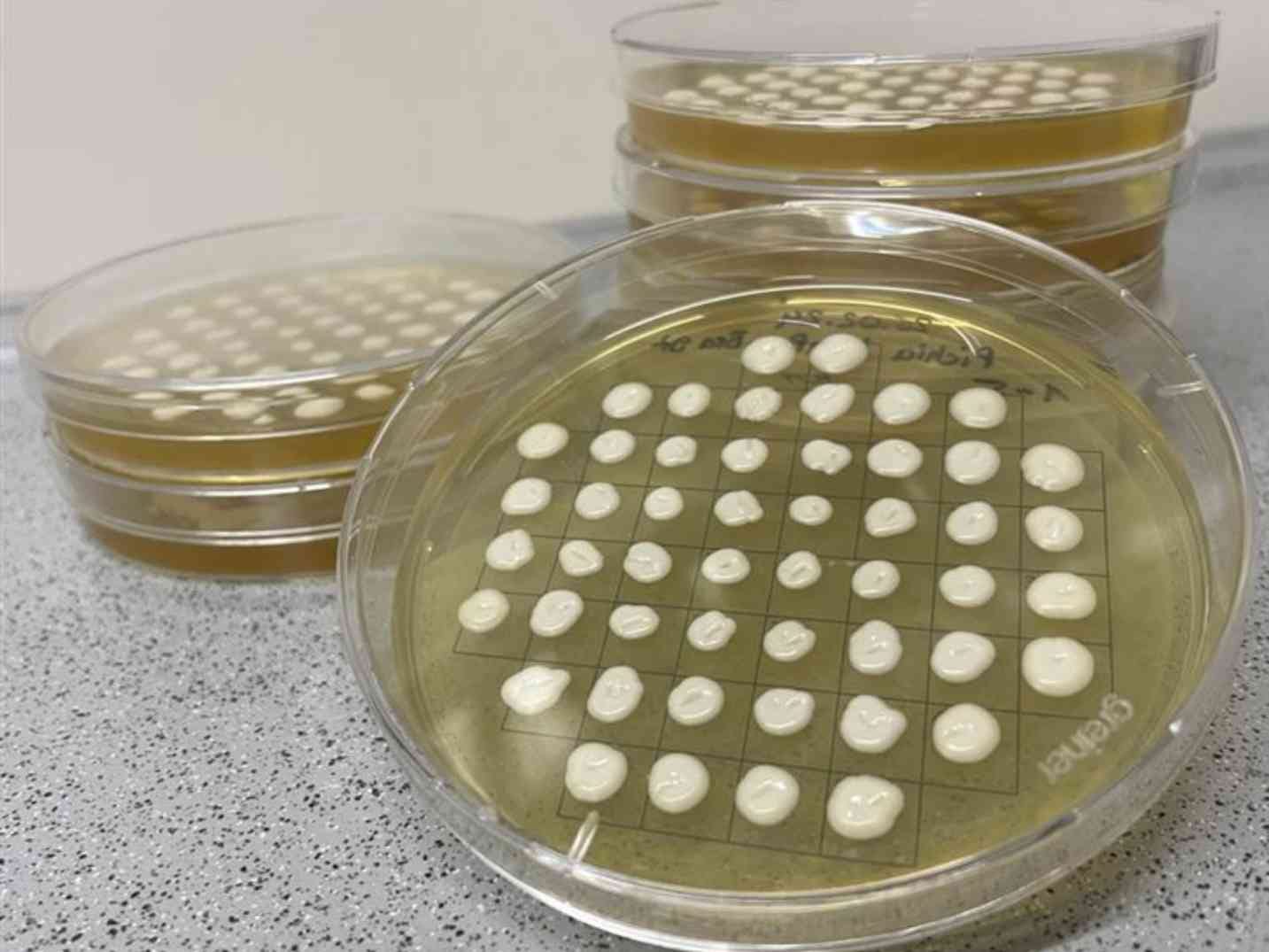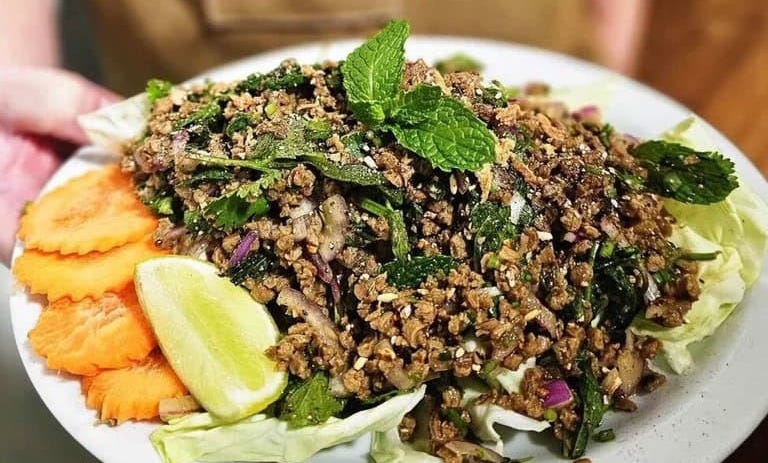Novel Breeding Tech for Climate-Smart Crops, Honey-Like Sweet Protein, and New Plant Growth-Promoting Bacteria
Also: NestFresh Eggs celebrated the first-ever hatch of in-ovo sexed chicks in the US.
Hey, welcome to issue #85 of the Better Bioeconomy newsletter. Thanks for being here!
If you’re working on (bio)tech-based solutions for sustainable food systems, I’d love to connect. I started this newsletter to meet folks with similar interests, so feel free to reach out to chat on LinkedIn or hop on a call—I’m always happy to discuss ideas and opportunities! 🙂
Let’s dig into the latest updates on the intersection of biotech and agrifood!
BIO BUZZ
🇩🇪 German researchers developed a novel honey-like sweet protein to reduce sugar content in packaged food and beverages
X3, the novel sweet protein sweetener developed by scientists at the Fraunhofer Institute for Molecular Biology and Applied Ecology, mimics honey and is 10,000 times sweeter than table sugar.
Made using microbial fermentation, just a few milligrams of the ingredient can achieve the same level of sweetness as the 106g of sugar found in a typical cola, replacing the high calories without affecting the product's taste.
Unlike artificial sweeteners, X3—based on modified brazzein—offers improved taste, no sugar, near-zero calories, cavity prevention, and no impact on blood sugar.
Source: Green Queen
🇨🇭🇺🇸 Syngenta and Enko reached a milestone in their efforts to discover new herbicide molecules using Enko’s AI-enabled platform
Enko’s ENKOMPASS™ platform allows for faster and more cost-effective discovery than traditional R&D. It targets a novel Mode of Action (MoA), which is how the herbicide controls susceptible plants.
The discovery of novel weed control molecules has entered the proof-of-concept phase, marking a major step in Syngenta and Enko’s multi-year collaboration. It builds on earlier successes in fungal control and diversifies Syngenta and Enko's portfolio of crop protection solutions.
Aggressive and resistant weeds, such as Palmer amaranth, waterhemp, blackgrass, and Italian ryegrass, cause global crop losses estimated at $32 billion annually.
Source: Business Wire
🇳🇿 BioConsortia and Hodder and Taylors partnered to introduce microbial seed treatment targeting nitrogen optimization for crops in New Zealand
The microbial seed treatment, FixiN 33, is designed for key crops like corn, brassicas, and cereals, aiming to optimize nitrogen usage and reduce dependency on synthetic fertilizers during the 2024/2025 growing season.
Starting in 2023, field trials in New Zealand showed that FixiN 33 consistently replaces synthetic nitrogen inputs, with results aligning with successes achieved in major agricultural markets such as the US, Canada, Brazil, and Europe.
FixiN 33 uses naturally occurring, non-gene-edited Gram-positive microbes for nitrogen fixation compatible with New Zealand's regulatory standards. The product offers logistical advantages, including a long shelf life of two years and stability on seeds for an additional two years.
Source: iGrow News
🇬🇧 Multus launched Proliferum B, a cost-effective cell culture media free of animal components designed for cultivated meat production
The UK-based startup’s product overcomes the slow and expensive media development processes traditionally faced by cultivated meat producers. By eliminating FBS, it provides a more scalable and ethically sound solution.
Proliferum B enables companies to fast-track their early R&D efforts. It reduces the need for prolonged sourcing, testing, and optimization of culture media for specific cell types, saving time and resources.
Rigorous testing on multiple cell types (e.g., bovine fibroblasts and murine pre-adipocytes) has shown that Proliferum B can achieve faster cell growth (shorter doubling times) and consistently perform across cell passages.
Source: Cell Base
🇺🇸 NestFresh Eggs celebrated the first-ever hatch of in-ovo sexed chicks in the US, advancing efforts to eliminate male chick culling
The technology allows hatcheries to identify and separate male and female embryos before hatching. By July 2025, certified eggs from this process will be available at major retailers like Whole Foods and Publix.
In-ovo sexing technology uses hyperspectral imaging to determine the sex of embryos without harming the eggs. By identifying the feather colour of the embryos, this method avoids male chick culling, a standard practice in the egg industry.
Future advancements aim to sex eggs as soon as they are laid, potentially eliminating male embryo incubation and further improving efficiency and ethical standards.
Source: AgFunder
BIO BUCKS
🇨🇦 CULT Food Science plans to acquire The Better Butchers, issuing shares valued at $2M and additional conditional shares
While The Better Butchers (TBB) was originally focused on cultivated meat, it is now developing mycelium-based meat alternatives. It offers products like crumbles in various flavours and explores hybrid meat options, combining mycelium with cultivated meat.
Mitchell Scott, co-founder of TBB and current CEO of CULT Food Science, joined CULT in November 2023 after previously leading The Very Good Butchers. Celeste Trujillo, TBB’s co-founder, will serve as CEO of TBB post-acquisition.
The acquisition is contingent upon securing regulatory and shareholder approvals, completing the due diligence process, and CULT raising a minimum of $1.5 million in financing within 60 days following the transaction's closing.
Source: vegconomist
GEEK ZONE
🦠 Novel bacterial species with unique plant growth-promoting traits offer a sustainable alternative to chemical fertilizers
Researchers isolated the strain Lelliottia sp. JS-SCA-14 from Korean soils and confirmed its novel status through genomic analysis. The strain showed unique features that distinguished it from closely related genera, including unique carbon utilization and enzyme activity profiles.
The strain enhanced tomato seed germination rates to 100% compared to 94.67% in controls and significantly increased seedling vigour. In greenhouse trials, JS-SCA-14 inoculation increased tomato plant fresh weight by 34.4% and dry weight by 35.4% under phosphorus-limited conditions.
The genome of JS-SCA-14 includes unique regions from horizontal gene transfer, enhancing its plant growth-promoting traits like phosphate and potassium solubilization, nitrogen acquisition, and iron metabolism.
Source: Frontiers in Plant Science
🌾 Novel breeding strategy increased crop yields by 47% under normal conditions and rescued up to 100% of yield losses under heat stress
The research team developed a novel breeding strategy, Climate-Responsive Optimization of Carbon Partitioning to Sinks (CROCS), using prime-editing tools to create crops that improved yields under normal and heat-stress conditions.
The process involved adding a 10-base pair heat-shock element (HSE) to the promoters of cell wall invertase (CWIN) genes in elite rice and tomato cultivars. This modification activated the CWIN genes in response to heat stress, enhancing carbon allocation to grains and fruits.
Field tests showed that the CROCS strategy increased tomato yields by 14–47% under normal conditions and 26–33% under heat stress, rescuing up to 100% of heat losses. In rice, yields rose by 7–13% normally and 25% under heat stress, recovering up to 41% of losses.
Source: Phys.org
🤖 AI-automated system achieved 95% accuracy in classifying fungal-fungal interactions
The study developed a machine learning approach using deep neural networks (DNNs) to automate the classification of fungal-fungal interactions, particularly between Fusarium graminearum and candidate fungi, from a dataset of 38,400 fungal strains.
The DenseNet121 model achieved the best accuracy (95%) and macro-averaged F1-score (93.1%). Images were captured from 96-well plates with fungal co-cultures using standardized imaging techniques. A dataset of 23,000 images was created, and 1,564 were annotated manually for training.
The method addresses inefficiencies and subjectivity in manual inspection of fungal interactions, contributing to faster, more reliable identification of biocontrol fungi for agriculture.
Source: Computational and Structural Biotechnology Journal
🧬 DNA-free CRISPR/Cas9 system enabled genome editing in soybeans without tissue culture
The study developed an in-planta bombardment-ribonucleoprotein (iPB-RNP) method for delivering CRISPR/Cas9 directly into the shoot apical meristem (SAM) cells, eliminating the need to introduce foreign DNA or rely on tissue culture.
This versatile system works across soybean varieties, making it genotype-independent and broadly applicable. The method achieved mutation rates of 0.4% to 4.6% in the E0 generation, successfully transmitting mutations to the E1 generation and ensuring heritability.
This approach bypasses the complexity of traditional tissue culture methods, offering a practical and cost-effective alternative for plant genome editing in soybean and potentially other dicotyledonous plants.
Source: Plant Physiology
🔥 Thermotolerant crops created through enzyme-based bioengineering mitigate heat-induced yield losses
The study addresses challenges posed by rising global temperatures impacting photosynthesis and crop productivity. Plants may better tolerate heat by improving enzymes' thermostability and maintaining vital processes like photorespiration.
The team enhanced the thermostability of glycerate kinase (GLYK) by substituting regions with segments from the thermophilic alga Cyanidioschyzon merolae. This increased its melting temperature by 6 °C and activity at higher temperatures.
This method, which involves molecular simulations and structure-guided recombination, holds promise for improving the thermotolerance of other enzymes, which could lead to more climate-resilient crops.
Source: Plant Biotechnology Journal
EAR FOOD
🎧 Green-On’s Annette Graneli on making palm oil alternatives from gas and water without the need for agriculture
🎧 How innovations in business model shaped agritech in 2024
BETTER BIOECONOMY EXCLUSIVE
💬 My recent conversations with bioeconomy innovators
Founder of Media City Scientific, Katie Bashant Day: A Scientist-Founder’s Journey to Make Biotech Research Reliable and Ethical
Innovation Specialist at The Good Food Institute India, Devika Suresh: Laying the Foundation for Smart Protein Leadership in India
Biotech consultant and ex-CSO of Vow, James Ryall: Bridging Science and Business to Support Startups Using Biomanufacturing
Check out more conversations!
Enjoyed this issue? If it brought you value, please consider sharing it with a friend who might benefit, or making a small pledge to acknowledge the hours behind each piece. Thank you for reading and supporting my work!





Hi Eshan, thank you very much for excellent issue #85. You always nicely highlight the latest cool developments in the alt protein space in a understandable way. The community appreciates all the time and effort that you are putting into the space. You rock! Have a very nice and peaceful day 😊